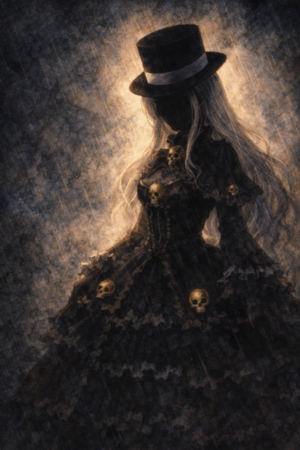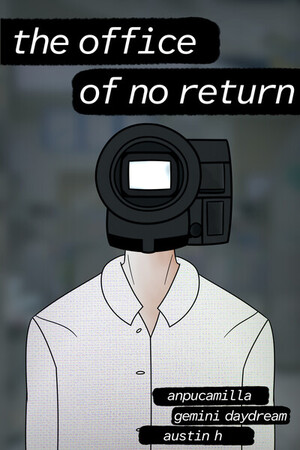Chapter 1:
Scene I
Snapshot
I lowered the camera from my eye, and the instant film emerged. I slipped the undeveloped photograph into the front pocket of my laboratory coat. Only after several minutes would the image be clear enough to see. Until then, all there was to do was enjoy the silence of Trinity Great Court. What a way to spend my first afternoon in the United Kingdom, I thought to myself. Before appreciating more than a glimpse of London, I had immediately flagged a taxi and headed out. My first time in this country — on this continent — would be spent completing the task I had set out to do. Nothing more, nothing less. By then, I felt much too old to bother with fun and games. All work and no play had made me into a boring adult.
"Oh, wow! Is that an actual Polaroid?" I turned around. A young man with stylish glasses approached me. "I’ve never seen one with my own two eyes."
And did those two sparkling eyes ever make me shy. There was also that alluring face and that bewitching accent. "If I can be honest, I am not very knowledgeable on this topic."
"How strange. Those things are pretty rare these days. But aren’t all strangers just a little strange?" He hummed to himself and glanced me up and down. I tried and failed to hide in plain sight from his gaze. "I think you must be right around my age. Yet what an air you’ve got about you, huh?"
No point telling the young man that I was over thirty years old. The magic of why I appeared not a day past twenty could safely remain unstated.
"Are you a Cambridge student? Faculty?"
I shook my head. "Just visiting."
"A tourist! From America, no less. Dressed in a white coat, on a summer day." He chuckled. "I’ve gotta say, you really do stick out. A new sight, but a pleasant sight indeed."
Did he fail to notice how my face reddened from his wink, or was he being a gentleman in not remarking on it?
"I see you’re taking shots around the school."
"Yes. I tried to come when it was less busy."
"Good timing. Now’s a lazy time of day."
"That it is." I glanced at his book bag. As stylish as his glasses, and likely filled with course notes. "How humbling it must be to study at the alma mater of so many great men of history."
"Puts on some extra pressure, that’s for sure." He looked out at the largest courtyard in Europe and pointed at nowhere in particular. "Just think: that’s where Sir Newton might’ve sat. He studied here at Trinity, you know!"
I knew that already, but held my tongue. There was a joke to be made about a Trinity College alumnus not believing in the Trinity, but I did not know how to make it.
"In Nevile’s Court, he found the speed of sound. The northern cloister stands right to this day."
"Incredible."
Unfortunately, Newton’s results left much to be desired. There was no way of measuring time with sufficient accuracy, and he did not take into account the sound energy dispersed into heat. But it was the thought that counted. And in accordance with that long tradition, I did not interject with those details.
"At Cambridge, Newton stayed for decades long. He studied, taught, and wrote Principia."
I nodded. "He gave so much to this place."
"And Cambridge cherished Newton in return. Lucasian Chair, and Master of the Mint. Small titles for a man like him, but still." He stretched his arms. "I wonder what he’d say about this school, if somehow we could bring him back to life."
"I wonder." But it was not about Newton that I wondered. "I take it you are a student of physics? Or maybe of mathematics?"
"History. Can’t do sums to save my life." The young man laughed unabashedly. "Enthusiasm blesses not the man. But masters seldom make the greatest fans. They never see the magic in the gaps."
As unexpected as his answer was — in more ways than were immediately evident — I swallowed my surprise and shrugged with a smile. "I feign no hypotheses."
As pitiful as it sounds, that was the most I had ever spoken casually to someone outside of work. Though a part of me wanted to continue the conversation, I knew that it could get risky if it went on much further. Since if he saw the developed photograph—
"But anyway, I’m almost late for class. Could I snap one of you before I go?"
I blinked and did a double take. "I beg your pardon?"
"Or maybe of the two of us together. A souvenir for me to keep of you."
I tried to think of a believable reason for turning him down. Maybe I could say that I ran out of film? But I did not have the heart to firmly reject his request, as impossible as it was to accede.
Before I could come up with a good excuse, the student cleared his throat. "On second thought, forget I ever asked. The film for that must cost a fortune, yeah? Since Polaroid has long been out of business."
I sighed, equally relieved and remorseful. "I am sorry." And I truly was. The problem was not money, but rather secrecy. But right as he mumbled a few parting pleasantries and turned to go, I stopped him. "Out of curiosity. Why did you want to take a picture of me?"
He glanced back with a somewhat subdued air. "I’m not so sure. It came to mind, is all. But if I had to, how would I respond?" He furrowed his eyebrows, searching for the right answer. After carefully choosing his words, he replied.
"What are we, if not piles of memories? And on the day they fade, do we not die?"
I stared at him, stunned by his eloquence. He rubbed the back of his neck and shrugged. "And plus, I dabble in photography. But that’s a boring answer, don’t you think?"
With that, he walked off. When he was gone, I pulled out the partially developed photograph from my front pocket. The image was of a courtyard full of young men walking and talking, enjoying a sunny afternoon. Their attire was characteristic of seventeenth-century England, almost like they were on the set of a period drama. The picture offended my sensibilities. My own perspective of the past was devoid of vibrant hues and tones. I understood that the students of Trinity College from four hundred years ago lived with color all around them, but my brain was in revolt. Even as part of the team that built this camera, something inside me doubted that the scene depicted was truly of the past. But that was indeed a picture of students from centuries ago, of people now long gone — of people whose grandchildren were also long gone.
It was a precious record of the prime of countless youths, studying at one of the world’s oldest universities at a time without electricity, women’s rights, or a concrete understanding of gravity. Yet, in spite of its momentous value, I held it up and squinted, scanning all the faces in the picture. None of them looked like Isaac Newton, I thought. Not that I knew what his face looked like in his student days.
Time was of the essence. I recalibrated the camera’s settings and raised it to my eye once again.



Please sign in to leave a comment.